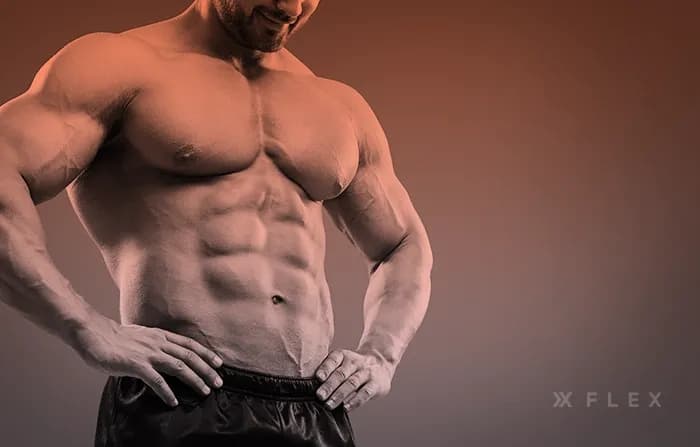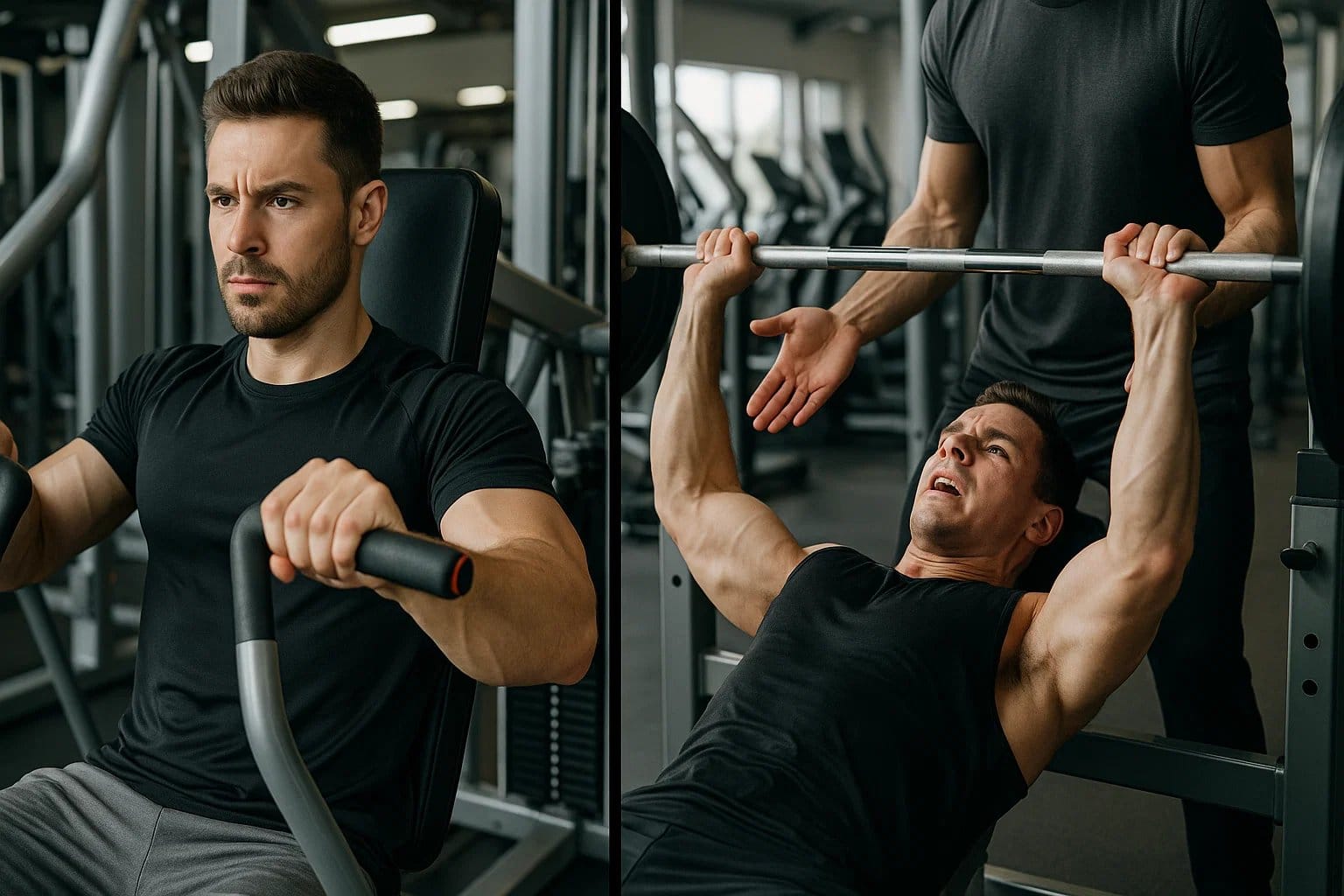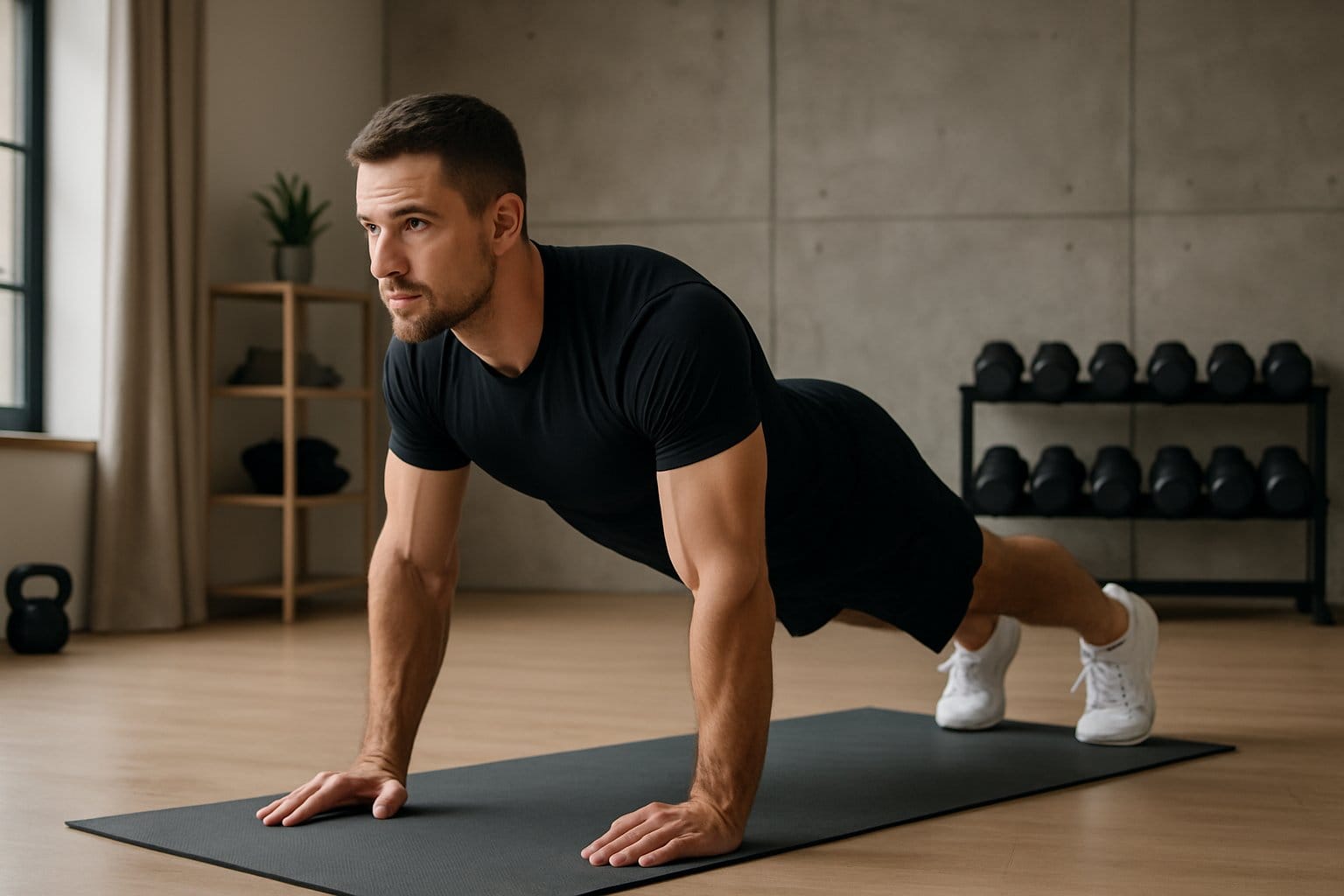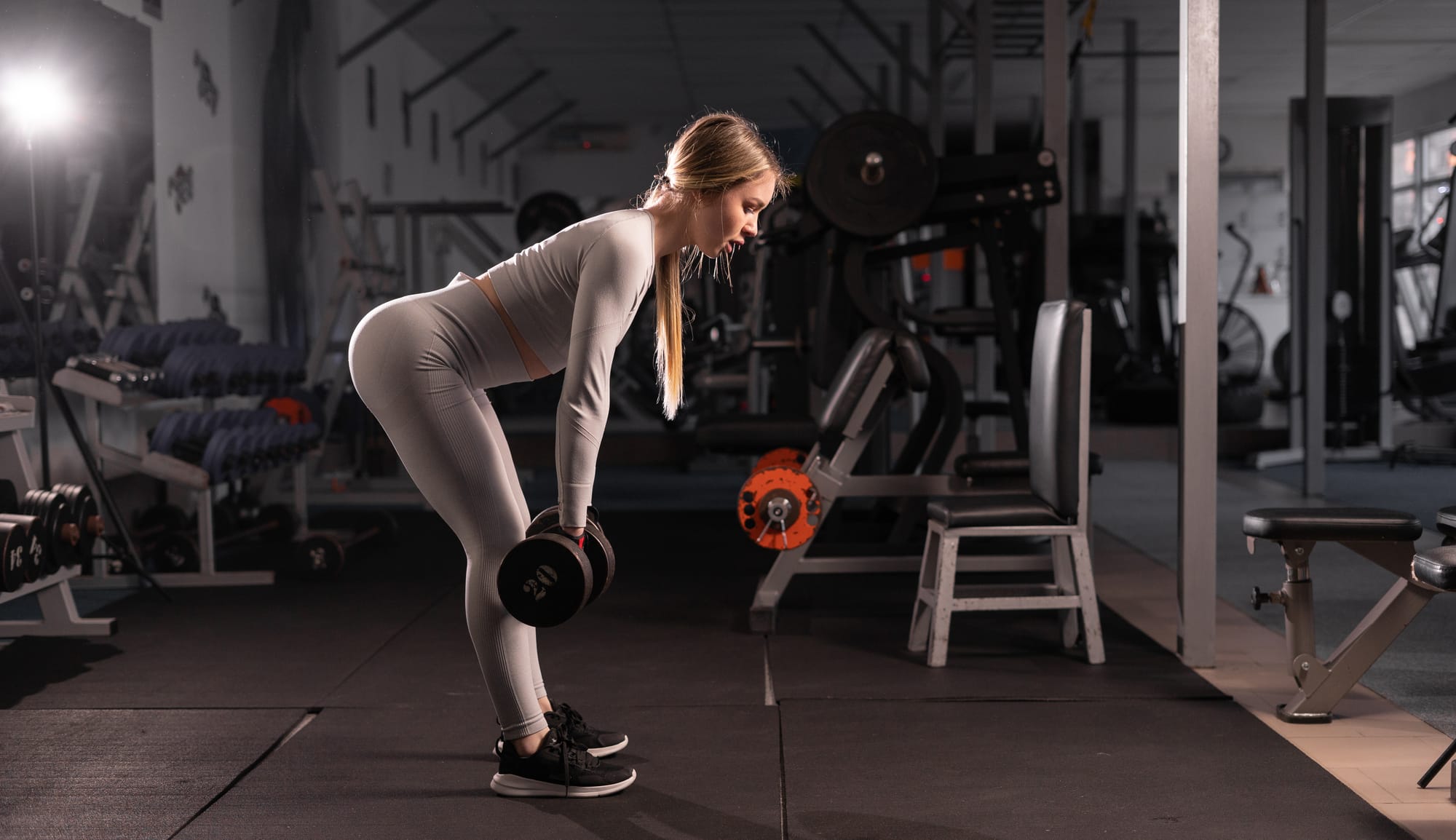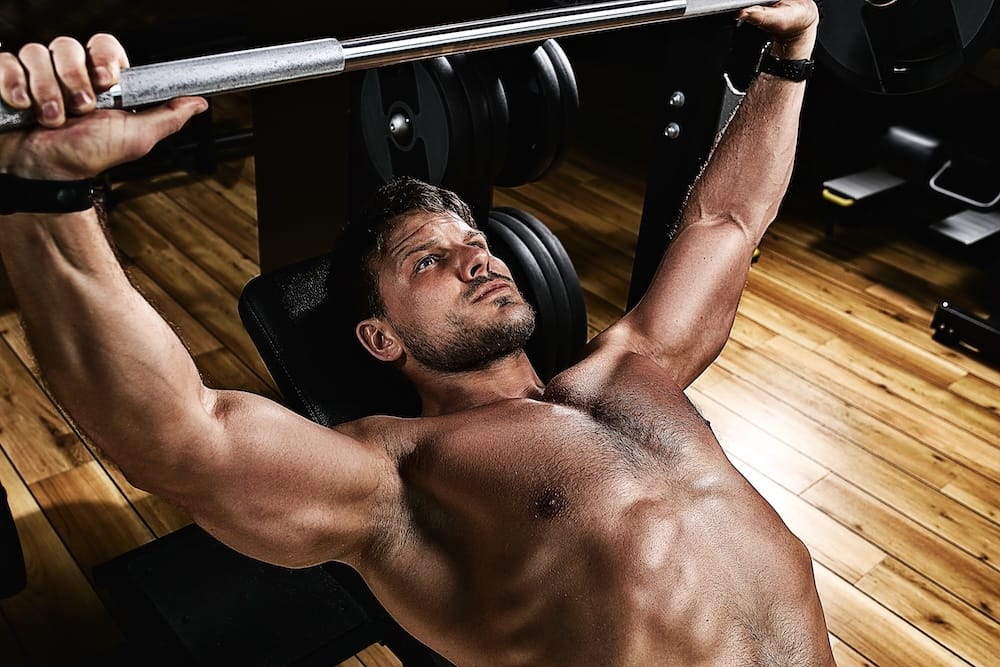Lean Muscle vs. Bulky Muscle
Lean vs. bulk: which is better for you? Explore the differences and learn how to attain your preferred physique through diet and exercise.
Learn how to achieve your body goals.
Once you start hitting the gym, everyone’s goals will both solidify and change.
Maybe you walked in looking to “lose weight” like most people do.
However, seeing the huge array of bodies in the gym might inspire you to look at a muscular gain too. “Getting big” or “bulking up” can certainly be rewarding.
Men, especially often list this as a gym goal. Many of us have heard the “lean bulk vs. dirty bulk,” debate and it’s often related to which guys want to look cut and which just want to get huge.
But what does it really mean to be bulky or lean? Are the terms so easily defined? This quick guide will walk you through the meaning of bulky and lean physique types.
Understand the benefits of each and how you can alter your diet and workout routine to achieve any body type you may be looking for.
What is a Lean Physique?
“Lean” can mean different things to anyone. We often associate lean with the stereotypical “swimmer’s build” or “runner’s body” when it comes to athletics. However, some people would view these figures as “slim” or even “skinny.”
Perhaps lean to you looks like svelte-yet-strong soccer superstar Cristiano Renaldo. People highly desire Brad Pitt's ripped physique in "Fight Club" because of his shredded abs and lean appearance.
No matter how you define being lean, most lean bodies have a few common qualities. A lean body defines itself by having a lower body fat percentage. This highlights a more toned and defined appearance compared to bodies that are more muscular or bulky.
For a lean physique, you need a combination of cardio, a good diet, and some strength training.
These will help you cut excess body fat and keep the muscle mass you do have.
Leaner people tend to have a more slender and athletic look, showing off muscle definition without excess bulk.
Bulky vs lean physiques mostly differ at the level of muscle mass, body fat percentage, and overall body size.
Bulky physiques focus on big muscles and overall looking “larger”. For a lean physique, think of someone who looks “cut”: defined muscles and low body fat.
Let’s take a look at a few pros and cons of a lean body type.
Pros of a Lean Body
Definition: Lean body doesn't mean more muscles, but makes it easier for muscles to be visible. From an aesthetic standpoint, many people prefer this look.
Health: Most people experience better health outcomes when they have a lower body fat percentage. You’re looking at a lesser risk of heart disease, other cardiovascular issues and metabolic disorders.
Bodies with less fat may be able to avoid health risks like insulin resistance more effectively.
Athletic Performance: Depending on which sport you practice, low body fat levels can make you a better athlete. Less fat over all can give you an edge in agility, speed, and athletic performance. Runners and soccer players for example often do better with lower body fat.
Confidence: Looking shredded always gives you a nice feeling. If you like seeing a slim figure in the mirror, getting lean can boost your self-esteem.
Confidence in how you look usually makes most people overall happier. You may even notice positive effects in how people treat you in your personal life or at work.
Lean people often have a very aesthetic body shape with low amounts of belly fat and a lower waist circumference. You may have an easier time with fat loss if you tend toward a lean body type.
Clothes Shopping: It may not be a major factor to you, but being leaner can make your shopping trips a bit simpler. Usually, clothes are designed with slim or lean people in mind. You’ll probably have an easier time finding stylish gear in your size. It seems trivial but if you don’t enjoy shopping, it can make your trips to the mall less stressful.
Cons of Having a Lean Body
Tough to maintain: What’s less fun than getting lean? Staying lean. Maintaining a lean body is physically and mentally demanding. You need to constantly be thinking about your diet exercise, and lifestyle to keep it up.
This is especially true if it’s something you want long term. Maybe you can’t pick up another beer or a donut, like your friends would if you want to maintain your shredded bod.
Ultimately, keeping weight off can be a challenge to incorporate into your lifestyle.
Potential Eating Disorders: The line between getting lean as a positive goal and being obsessed with how you look can blur pretty quickly.
What looks like “self-improvement” to you can quickly spiral into an unhealthy obsession with staying lean. There’s a risk that this could push you into unhealthy patterns, bad habits, overexercising or even an eating disorder.
Less Muscle Mass: If you’re super “cut” (aka, very low body fat and visible muscles showing) you’re probably going to have more limited strength and power, compared to a bulkier person.
This can show in big strength moves. If you’re trying to hoist a barbell, for example, you might notice the big guy next to you looking like he can do it in his sleep, while you struggle to get the bar overhead.
All this means is you may have to be more conscious or diligent when it comes to working on your big strength moves.
Less Energy: Because of the way your body metabolizes the food you eat, a lower body fat percentage means having less energy stored as body fat.
Less fat may seem nice, but your body actually does need fat to fuel your workouts or when you’re not eating enough calories.
The “Lean physique" definition can vary among. What you see as lean could be totally different from someone else. What’s most important is that you work to strike a balance between healthy body composition and your happiness and well-being.
What is a Bulky Physique?
A bulkier physique usually means someone who is physically larger and takes up more space.

This means more size, more muscle, but also more fat. A bulky physique typically refers to a body composition with a higher level of muscle mass and overall size.
Bulkier people usually strength train and eat more calories to support their muscle growth. This body type has larger, more prominent muscles and a higher body weight.
For many men, getting bulkier in the gym is a key aspiration. To put on mass, professional bodybuilders and aspiring lifters or gym enthusiasts may go through a “bulk” cycle to gain weight.
Sometimes, but not always, they can then “cut” or diet once they’ve achieved their desired muscular gain to get more definition.
To do this, you need to consume a calorie surplus, aka more food. Typically this comes in the form of a “clean bulk” where you eat healthy foods to gain weight, a.k.a, lean bulk vs. dirty bulk, where the quality of food does not matter.
Here, it’s all about cramming in calories, baby! Junk food is okay for a dirty bulk if it means you’re consuming more total calories.
Although the quality of your food can impact your energy levels, and the quality of your workouts, some gym goers are very much pro-dirty bulk to gain size quickly.
Take a look at our companion articles “Lean Bulk,” and “Dirty Bulk” to learn more about how lean muscle vs. bulk can look on your body. Have you thought about what strategy works best for bulking? Get familiar with what your bulking timeline should look like and see how long you should bulk for.
Pros of Having a Bulky Physique
More Strength: A bulky physique is often associated with higher muscle mass, contributing to greater overall strength and power. In studies, higher muscular strength has a positive correlation on athletic performance involving force. If you’re partial to weighlifting, bodybuilding, or contact sports, you may also see better performance.
These body types may find gaining muscle through resistance training easier than lean people.
Confidence: Love being the center of attention? Bulkier people may have a more commanding presence when they walk into the room (well, duh, they’re really big!).
You may be stoked to look huge if it’s a body type you feel comfortable in. And hey, if people think you’re more powerful than you really are, is that such a bad thing?
If you’re the captain of a sports team or the CEO in a boardroom, this may help you to be taken seriously or even to intimidate your competition.
Having a big body can make you powerful. However, it's crucial to consider how you come across in social and professional settings with a bulky physique.
Metabolic Health: Building and maintaining muscle mass can boost your metabolism. This can help you manage your weight over time. Good metabolic function is important not only to your weight, but can also help you ward off conditions like diabetes.
Joint Health: If you’re muscular, you may be able to reduce the risk of injuries to your joints. Think about it: there’s a lot more going on there than for a small or frail person. More “padding” so to speak helps absorb impact on your joints so you don’t crack or injure anything.
Cons of a Bulky Physique
Joint Stress
Healthy muscle is great for most people’s joints and helps to provide support and stability. That being said, too much of a good thing can hurt you.
Excessive bulk without proper form and joint care can put stress on your joints and increase your risk of injuries. It can also make physical activity more difficult.
Too Much Fat
Excessive body fat, especially visceral fat on your abdominals can be dangerous for your internal organs and overall health. Visceral fat is the fat that surrounds your organs and can reduce their health. Excess fat also increases your risk of conditions like type 2 diabetes.
Higher body fat percentages can put your heart health at higher risk. Men and women with bulky physiques should keep an eye on their body mass index (BMI).
Measuring body fat is a good indicators of whether you have a good balance of lean muscle vs. bulk.
Shopping
Do you have “thunder thighs” from bulking and hitting the squat rack? Good luck finding pants to fit over your glutes and quads.
It’s pretty easy to find bigger or plus-sized items in regular stores now (thankfully). But these styles are typically designed for A) people with high body fat and no muscle or B) those who are overweight, or obese.
Luckily tapered and athletic-fit jeans pants are becoming easier to find. And women’s clothing also often includes “curve” options for if you’re working towards a small waist and big glutes.
That being said, the clothing market still skews toward leaner people, so you might have to search a little harder for styles that suit you.
People May Be Scared of You
Although most of us work on our gym goals only for ourselves, there is a very real stigma associated with being a more muscular or imposing person.
This can have significant social consequences. If you’re a guy, you may look “scary” or “intimidating” to others. And as a woman, some may see you as “manly” or “less feminine.”
Although stereotypes should never define how you feel about yourself, it’s important to know that drastic changes to your physique can have social consequences on how people treat or perceive you.
Flexibility/Mobility
Have you ever seen the guy at the gym whose shoulders are so developed his neck doesn’t move properly?
Extremely bulky people might have trouble with flexibility and agile movement. This can create performance problems not only in sports but in any activity that requires a wide range of motion.
If you want to bulk up significantly, you need a good stretch routine. Try incorporating exercises like yoga or stretch classes to make sure you don’t fall prey to being too muscular.
Calorie Surplus: To get and stay big, you’ll need to eat more food, and sometimes a lot of it! Not only can this feel intimidating or even stressful, but grocery shopping that much can be expensive!
Eating more calories from healthy foods means eating foods like meat, fish, and poultry that are rich in nutrients. High-protein foods are key here. In fact, a high protein diet is one of the best ways to improve body composition. Unfortunately, these are some of the most expensive options at the grocery stores.
This can make meeting your calorie and protein goals a challenge. Luckily, there is room to try out nutritional supplements if you find you’re not getting enough protein or nutrition to build muscle.
Supplements like creatine can help you hit your bulk goals. We’ve broken down a few insights around creatine powders that may be helpful if you’re looking to get big. Curious? Check out Creatine Monohydrate vs. Micronized, Can I Take Creatine Before Bed, and Does Creatine Expire.
Is it Better to Be Lean or Bulky?
It’s up to you!
Body type preferences are highly personal. What is achievable to you depends a lot on your personal goals.
Keep in mind too that a lot of your body type is based on genetics (curse you mom and dad!) Research shows that obesity, for example, and fat distribution have both genetic and environmental influences.
Like with lean bodies, the concept of a "bulky physique" varies and these could be very different between you and someone else.
Striking a balance between muscle development, your overall health, and personal preferences is key to getting the body that aligns best with your goals and personal well-being.
Training with others can provide mentorship and inspire you to do your best. It provides a great sense of camaraderie and you can even turn your workouts into a game to inspire a competitive edge. In fact, our leaderboards at Flex will help you do this if you love a challenge.
That being said, you’re you and your body works differently from everyone else’s. Don’t compare your workouts or physique goals to others if it’s detrimental to your health.
Whether you love the lean look or seek to get beyond bulked up, it’s important to move at your own pace and consider your personal health history.
Fitness should feel achievable and goal-oriented. And although it’s great to push yourself out of your comfort zone, overtraining is detrimental to your goals.
Take things one step at a time, whether you want to bulk up or cut down and you’re likely to see some fantastic results.
Big Picture

“Lean” and “bulky” are challenging to define, since there’s no set weight, size, or measurement for either. What’s lean to one may be bulky to another and vice versa.
That being said, lean bodies usually come with a lower body fat percentage as well as a lower muscle mass.
Bulky bodies are the opposite, with both higher muscle and higher fat.
Research shows that eating a balanced diet can improve your health. This diet should include fat, protein, and carbohydrates. It doesn't matter what body type you are aiming for.
Think about the pros and cons of each body type to figure out what’s important to you. Talk to your doctor or registered dietitian if you are considering any significant diet or body changes.
If you are looking to bulk up, eating at a caloric surplus will help you put on weight. To lean out, focus on a caloric deficit.
No matter what your goals are, make sure to get a sufficient protein intake, good hydration and proper sleep. These factors will help your muscle tissues repair themselves.
Looking to bulk up your workout routine or cut the fat? Flex AI has an all-in-one workout platform to help you learn new exercises, see your fitness journey from start to finish, and keep all your PRs in one place.
We’ve made it simple to work on customized fitness plans or to introduce a little friendly competition to your fitness community by sharing exercises with your friends. Get started for free through the Flex fitness app.
References:
Antonio, J., Ellerbroek, A., Silver, T., Orris, S., Scheiner, M., Gonzalez, A., & Peacock, C. A. (2015). A high protein diet (3.4 g/kg/d) combined with a heavy resistance training program improves body composition in healthy trained men and women--a follow-up investigation. Journal of the International Society of Sports Nutrition, 12, 39. https://doi.org/10.1186/s12970-015-0100-0
Churchward-Venne, T. A., Murphy, C. H., Longland, T. M., & Phillips, S. M. (2013). Role of protein and amino acids in promoting lean mass accretion with resistance exercise and attenuating lean mass loss during energy deficit in humans. Amino acids, 45(2), 231–240. https://doi.org/10.1007/s00726-013-1506-0
Flann, K. L., LaStayo, P. C., McClain, D. A., Hazel, M., & Lindstedt, S. L. (2011). Muscle damage and muscle remodeling: no pain, no gain?. The Journal of experimental biology, 214(Pt 4), 674–679. https://doi.org/10.1242/jeb.050112
Krzysztofik, M., Wilk, M., Wojdała, G., & Gołaś, A. (2019). Maximizing Muscle Hypertrophy: A Systematic Review of Advanced Resistance Training Techniques and Methods. International journal of environmental research and public health, 16(24), 4897. https://doi.org/10.3390/ijerph16244897
Lambert, C. P., Frank, L. L., & Evans, W. J. (2004). Macronutrient considerations for the sport of bodybuilding. Sports medicine (Auckland, N.Z.), 34(5), 317–327. https://doi.org/10.2165/00007256-200434050-00004
Li, X., & Qi, L. (2019). Gene-Environment Interactions on Body Fat Distribution. International journal of molecular sciences, 20(15), 3690. https://doi.org/10.3390/ijms20153690
Mettler, S., Mitchell, N., & Tipton, K. D. (2010). Increased protein intake reduces lean body mass loss during weight loss in athletes. Medicine and science in sports and exercise, 42(2), 326–337. https://doi.org/10.1249/MSS.0b013e3181b2ef8e
Suchomel, T. J., Nimphius, S., & Stone, M. H. (2016). The Importance of Muscular Strength in Athletic Performance. Sports medicine (Auckland, N.Z.), 46(10), 1419–1449. https://doi.org/10.1007/s40279-016-0486-0
Venn B. J. (2020). Macronutrients and Human Health for the 21st Century. Nutrients, 12(8), 2363. https://doi.org/10.3390/nu12082363
Related articles
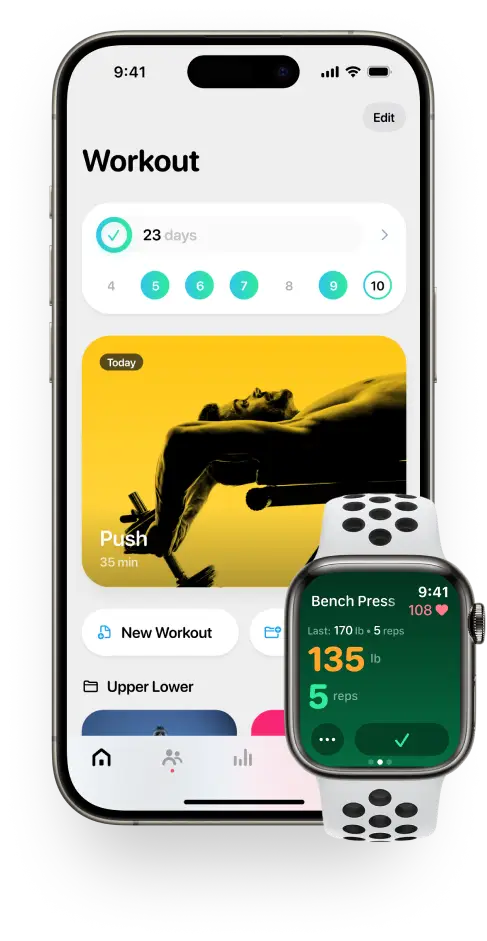
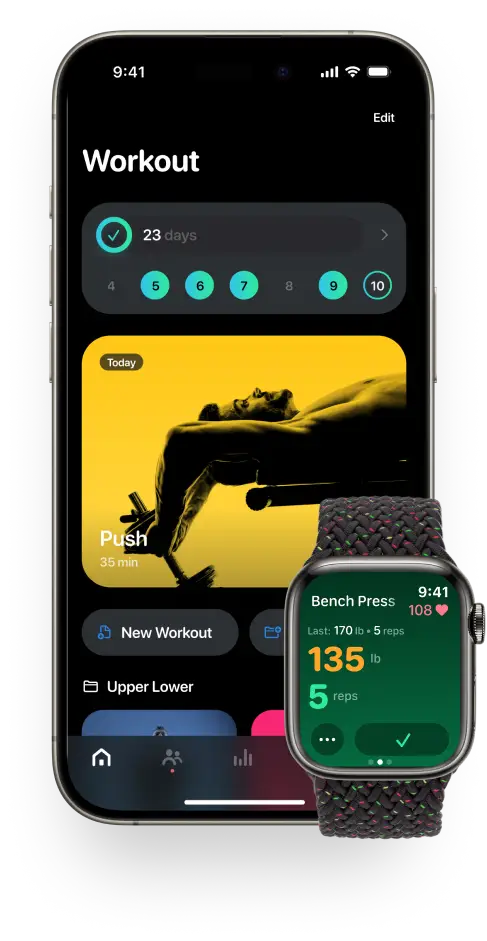
Get fit with Flex
Build muscle & lose weight fast for free.
Available on iPhone + Apple Watch
